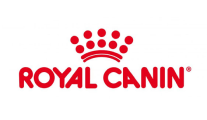What is Doxycycline Hyclate 100mg Tablets?
Doxycycline Hyclate 100mg Tablets are a semi-synthetic tetracycline antibiotic used to treat bacterial infections, tick-borne diseases, and infections caused by parasitic organisms. The broad spectrum antibiotic can be prescribed to treat many infections, including those not listed. Doxycycline Hyclate requires a prescription from your veterinarian.
For:
Dogs, Cats, and Horses
Benefits:
- Treats a broad range of bacterial and parasitic infections, including Lyme Disease, heartworm disease, periodontal disease, Leptospirosis, and toxoplasma.
- Fast-acting antibiotic starts to work in 1-2 hours.
- For use in Dogs, Cats, and Horses.
How does Doxycycline Hyclate 100mg Tablets work?
Doxycycline Hyclate works by preventing the growth of bacteria and parasitic organisms in the body.
Cautions:
Should not be used in pets that are allergic to Doxycycline. May cause elevated liver enzymes in bloodwork. Use with caution in pets with a history of liver disease or those that are pregnant. Medication is excreted in milk, do not use in lactating animals. Do not use within 2-3 hours of giving food or supplements containing iron or calcium, as these minerals affect the efficacy of this antibiotic.
Brand Name:
Doxycycline Hyclate Tablets
Generic Name:
doxycycline hyclate
What is the most important thing I should know about Doxycycline Hyclate 100mg Tablets?
Doxycycline Hyclate is a broad spectrum antibiotic prescribed to treat a wide range of bacterial and parasitic infections.
What should I discuss with my veterinarian before giving Doxycycline Hyclate 100mg Tablets to my pet?
Let your veterinarian know if your pet has a history of allergic reactions to antibiotics, is pregnant or nursing, or if they have a history of liver disease. Let your veterinarian know if your pet is taking any other medications, supplements, or over the counter medications, as these can interfere with Doxycycline.
How should Doxycycline Hyclate 100mg Tablets be given?
Doxycycline should be given by mouth every 12 hours or once daily, as directed by your veterinarian. It can be given with food to reduce stomach upset.
What are the potential side effects of Doxycycline Hyclate 100mg Tablets?
The most common side effects are nausea, vomiting, and stomach upset.
What happens if I miss giving a dose of Doxycycline Hyclate 100mg Tablets?
Give the missed dose as soon as you remember. If it’s close to their next scheduled dose, skip the missed dose and continue the prescribed dosing schedule until medication is finished or as directed by your veterinarian. Do not double dose to make up for a missed dose.
What happens if I overdose my pet on Doxycycline Hyclate 100mg Tablets?
Contact your veterinarian or emergency veterinary clinic immediately.
What should I avoid while giving Doxycycline Hyclate 100mg Tablets to my pet?
Doxycycline may make your pet more sensitive to sunlight. If possible, avoid prolonged exposure to the sunlight to prevent sunburn, especially on hairless areas like the ears, nose, and belly.
Always complete full course of antibiotics unless otherwise directed by your veterinarian, even if your pet seems to be feeling better.
What other drugs will affect Doxycycline Hyclate 100mg Tablets?
Do not give with other antibiotics unless directed by your veterinarian. Do not use within 2-3 hours of giving food or supplements containing iron or calcium, as these minerals affect the efficacy of this antibiotic.













































